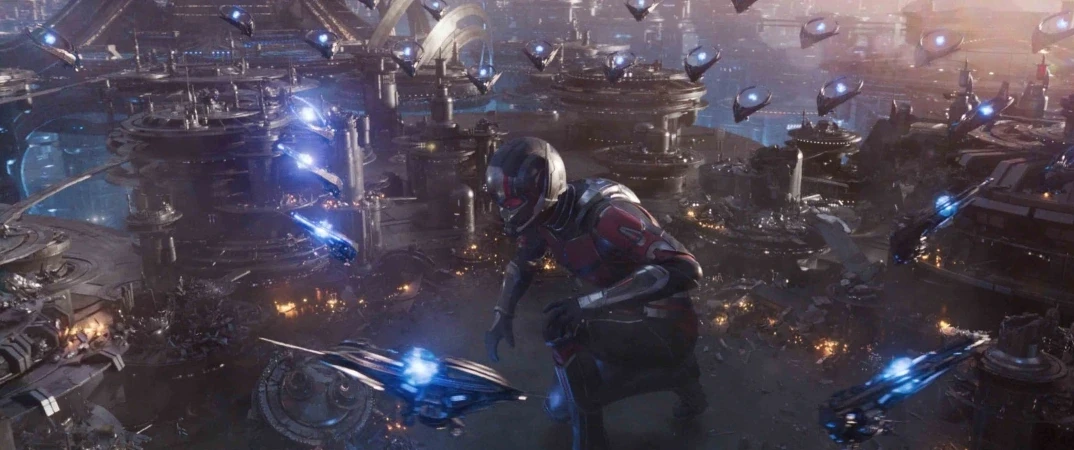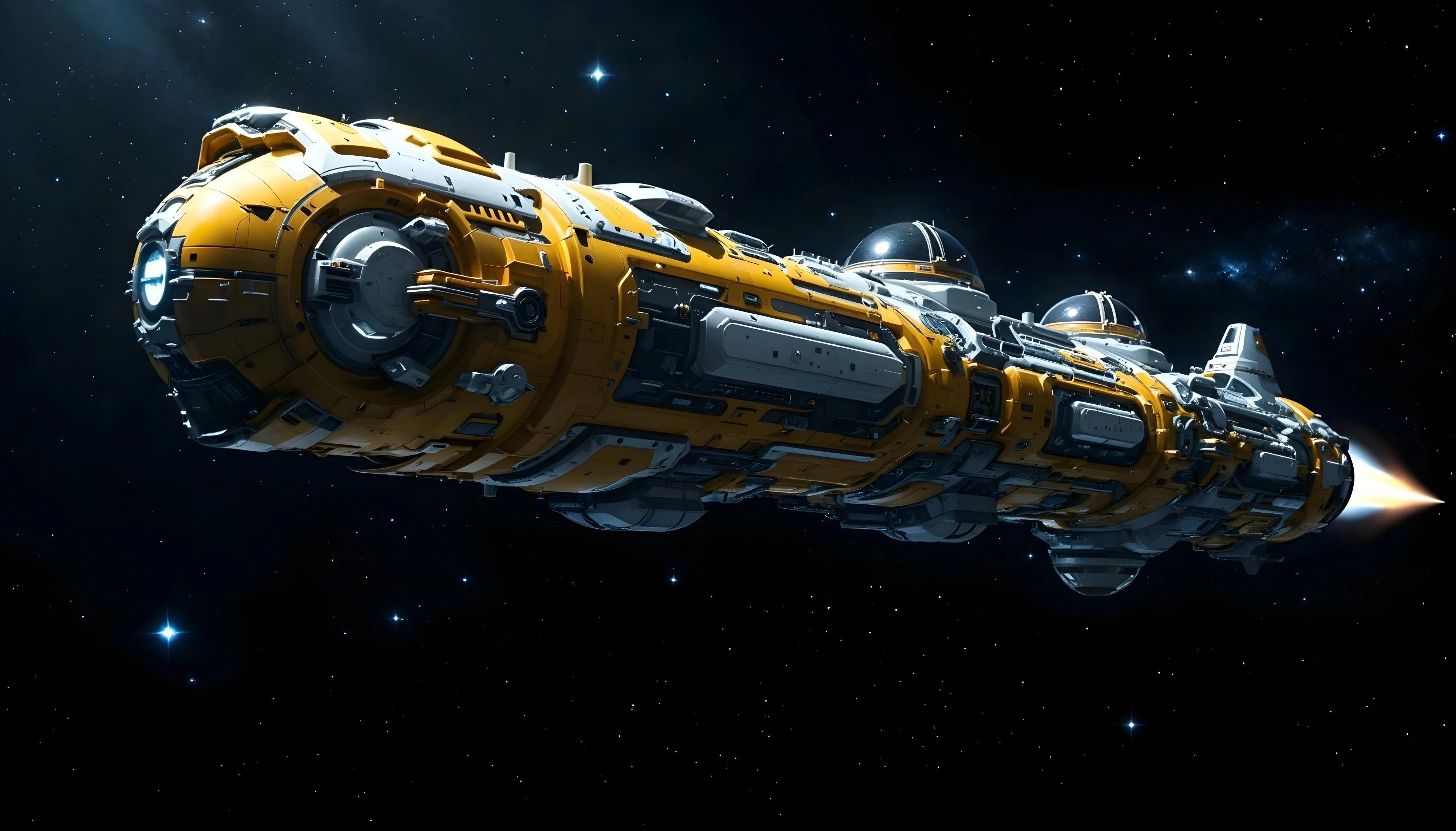












The SciNexic Files
The SciNexic Files
Feature
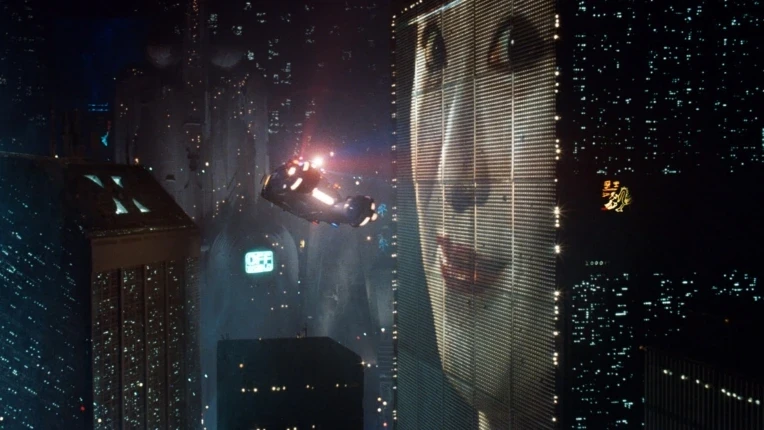

The Most Adapted Space Science Fiction Authors in Entertainment History
Rithic P
Nov 25, 2024
Rithic P
Nov 25, 2024
When it comes to space science fiction, certain visionary authors have seen their works transformed into countless movies, TV shows, and other media adaptations. But who holds the crown for the most adaptations? Let's blast off into this fascinating exploration of space Sci-Fi's most adapted storytellers.
Philip K. Dick: The Adaptation King
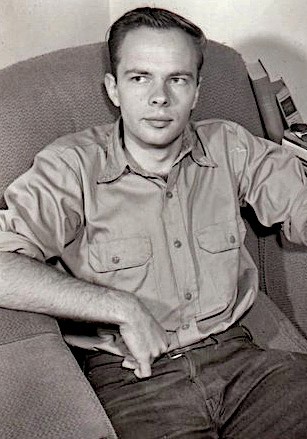
1960's image of Philip K. Dick
Leading the pack with an impressive number of adaptations (as of 2024) is Philip K. Dick, whose mind-bending narratives about space, consciousness, and reality have become Hollywood gold. His works have spawned over 30 screen adaptations, including:
• Blade Runner (1982, from "Do Androids Dream of Electric Sheep?")
• Total Recall (1990, from "We Can Remember It for You Wholesale")
• Minority Report (2002) • "The Man in the High Castle" (2015-2019 Amazon series)
• Electric Dreams (2017-2018 anthology series)

TOTAL RECALL - Official Trailer - by Sony Pictures.
from @studiocanaluk
What makes this outstanding author's work so adaptable is his uncanny ability to blend philosophical questions about humanity with action-packed narratives set in space and future worlds. His themes of artificial intelligence, alternate realities, and corporate dystopias remain startlingly relevant today.
H.G. Wells: The Pioneer
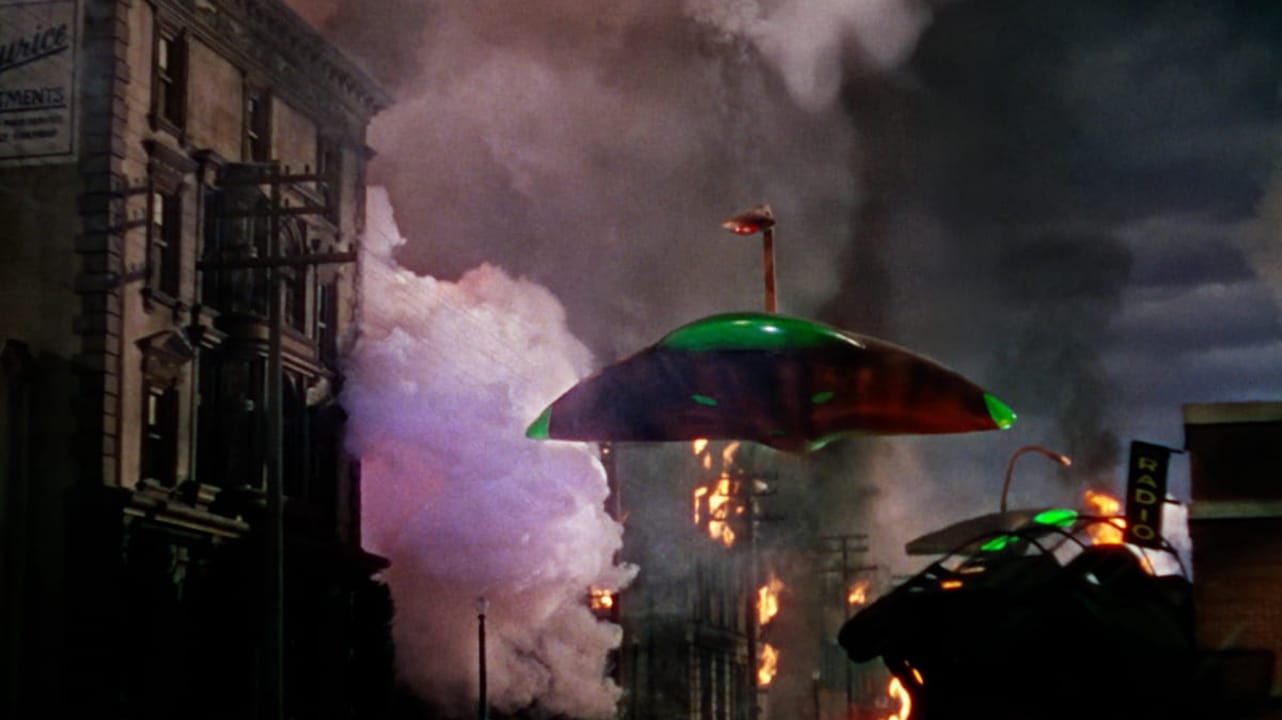
Alien Invasion scene from the 1953 War of the Worlds movie
While not exclusively a space sci-fi author, H.G. Wells deserves special mention with numerous adaptations of "The War of the Worlds" alone, including:
• Orson Welles' famous 1938 radio broadcast
• The 1953 classic film • Steven Spielberg's 2005 version
• BBC's 2019 miniseries
• Countless other radio, stage, and screen versions

The War of the Worlds | Trailer - by BBC.
from @BBC
Arthur C. Clarke:
The Enduring Impact of Arthur C. Clarke The visionary behind "2001: A Space Odyssey" has seen several significant adaptations:
• 2001: A Space Odyssey (1968, considered one of the greatest sci-fi films ever made)
• 2010: The Year We Make Contact (1984)
• Childhood's End (2015 SyFy miniseries)
• Rendezvous with Rama (Long-planned adaptation, which has had multiple attempts since the 1970s, and recent reports that Denise Villeneuve has taken the helm for the latest attempt)

Childhood's End Official Trailer - By SyFy.
from @televisionpromosdb
Ray Bradbury's Lasting Legacy:
Bradbury's work has been adapted numerous times, with notable space-themed adaptations including:
• The Martian Chronicles (1980 TV miniseries, plus various other adaptations)
• Fahrenheit 451 (1966 film, 2018 HBO adaptation)
• Various short story adaptations for "The Ray Bradbury Theatre" (1985-1992)

FAHRENHEIT 451 Official Trailer - by HBO.
from @OneMedia
Modern Masters Making Their Mark
More recent authors are seeing their work rapidly adapted with some becoming sci-fi cult classics.
Andy Weir:
• The Martian (2015 blockbuster film starring Matt Damon)
• Artemis (rights acquired by Phil Lord and Chris Miller, current status uncertain)
• Project Hail Mary (in pre-production as of 2024, with Ryan Gosling attached to star)

The Martian | Teaser Trailer [HD] by 20th Century FOX.
from @20thCenturyStudios
Liu Cixin:

2017 image of Liu Cixin
• The Three-Body Problem (Released on Netflix in March 2024)
• Multiple Chinese adaptations and projects in development

The San-Ti Explain how they Stop Science on Earth | 3 Body Problem - by Netflix.
from @stillwatchingnetflix
Why These Authors' Works Translate So Well to Screen
1. Visual Appeal: These authors excel at creating vivid, cinematically-friendly worlds that translate well to visual media.
2. Universal Themes: Despite futuristic settings, their stories tackle timeless human issues.
3. Scientific Foundation: Their work often builds on real scientific principles, making the fantastic feel possible.
4. Character-Driven Narratives: Strong characters that actors can sink their teeth into.
The Impact on Modern Science Fiction
These adaptations have created a feedback loop, influencing new authors who write with potential screen adaptation in mind. This has led to more visually-oriented prose and scene-structured narratives in modern space sci-fi literature.
The Future of Space Sci-Fi Adaptations
As of 2024, streaming services and traditional studios continue to invest heavily in space sci-fi adaptations. Notable projects include:
• Apple TV+'s adaptation of Isaac Asimov's "Foundation" (renewed for a third season)
• Various Philip K. Dick works in different stages of development
• New interpretations of Wells' classics
• Emerging authors' works being optioned before publication
While Philip K. Dick leads in pure numbers of adaptations, each of these authors has contributed significantly to the space sci-fi genre's presence in popular culture. Their works continue to inspire new generations of filmmakers and show that good science fiction stories are truly timeless. The success of these adaptations proves that space science fiction's appeal is universal, crossing media boundaries and continuing to captivate audiences decades after the original works were written. As technology advances and our own space exploration continues, these stories become increasingly relevant, ensuring their place in entertainment history.
When it comes to space science fiction, certain visionary authors have seen their works transformed into countless movies, TV shows, and other media adaptations. But who holds the crown for the most adaptations? Let's blast off into this fascinating exploration of space Sci-Fi's most adapted storytellers.
Philip K. Dick: The Adaptation King

1960's image of Philip K. Dick
Leading the pack with an impressive number of adaptations (as of 2024) is Philip K. Dick, whose mind-bending narratives about space, consciousness, and reality have become Hollywood gold. His works have spawned over 30 screen adaptations, including:
• Blade Runner (1982, from "Do Androids Dream of Electric Sheep?")
• Total Recall (1990, from "We Can Remember It for You Wholesale")
• Minority Report (2002) • "The Man in the High Castle" (2015-2019 Amazon series)
• Electric Dreams (2017-2018 anthology series)

TOTAL RECALL - Official Trailer - by Sony Pictures.
from @studiocanaluk
What makes this outstanding author's work so adaptable is his uncanny ability to blend philosophical questions about humanity with action-packed narratives set in space and future worlds. His themes of artificial intelligence, alternate realities, and corporate dystopias remain startlingly relevant today.
H.G. Wells: The Pioneer

Alien Invasion scene from the 1953 War of the Worlds movie
While not exclusively a space sci-fi author, H.G. Wells deserves special mention with numerous adaptations of "The War of the Worlds" alone, including:
• Orson Welles' famous 1938 radio broadcast
• The 1953 classic film • Steven Spielberg's 2005 version
• BBC's 2019 miniseries
• Countless other radio, stage, and screen versions

The War of the Worlds | Trailer - by BBC.
from @BBC
Arthur C. Clarke:
The Enduring Impact of Arthur C. Clarke The visionary behind "2001: A Space Odyssey" has seen several significant adaptations:
• 2001: A Space Odyssey (1968, considered one of the greatest sci-fi films ever made)
• 2010: The Year We Make Contact (1984)
• Childhood's End (2015 SyFy miniseries)
• Rendezvous with Rama (Long-planned adaptation, which has had multiple attempts since the 1970s, and recent reports that Denise Villeneuve has taken the helm for the latest attempt)

Childhood's End Official Trailer - By SyFy.
from @televisionpromosdb
Ray Bradbury's Lasting Legacy:
Bradbury's work has been adapted numerous times, with notable space-themed adaptations including:
• The Martian Chronicles (1980 TV miniseries, plus various other adaptations)
• Fahrenheit 451 (1966 film, 2018 HBO adaptation)
• Various short story adaptations for "The Ray Bradbury Theatre" (1985-1992)

FAHRENHEIT 451 Official Trailer - by HBO.
from @OneMedia
Modern Masters Making Their Mark
More recent authors are seeing their work rapidly adapted with some becoming sci-fi cult classics.
Andy Weir:
• The Martian (2015 blockbuster film starring Matt Damon)
• Artemis (rights acquired by Phil Lord and Chris Miller, current status uncertain)
• Project Hail Mary (in pre-production as of 2024, with Ryan Gosling attached to star)

The Martian | Teaser Trailer [HD] by 20th Century FOX.
from @20thCenturyStudios
Liu Cixin:

2017 image of Liu Cixin
• The Three-Body Problem (Released on Netflix in March 2024)
• Multiple Chinese adaptations and projects in development

The San-Ti Explain how they Stop Science on Earth | 3 Body Problem - by Netflix.
from @stillwatchingnetflix
Why These Authors' Works Translate So Well to Screen
1. Visual Appeal: These authors excel at creating vivid, cinematically-friendly worlds that translate well to visual media.
2. Universal Themes: Despite futuristic settings, their stories tackle timeless human issues.
3. Scientific Foundation: Their work often builds on real scientific principles, making the fantastic feel possible.
4. Character-Driven Narratives: Strong characters that actors can sink their teeth into.
The Impact on Modern Science Fiction
These adaptations have created a feedback loop, influencing new authors who write with potential screen adaptation in mind. This has led to more visually-oriented prose and scene-structured narratives in modern space sci-fi literature.
The Future of Space Sci-Fi Adaptations
As of 2024, streaming services and traditional studios continue to invest heavily in space sci-fi adaptations. Notable projects include:
• Apple TV+'s adaptation of Isaac Asimov's "Foundation" (renewed for a third season)
• Various Philip K. Dick works in different stages of development
• New interpretations of Wells' classics
• Emerging authors' works being optioned before publication
While Philip K. Dick leads in pure numbers of adaptations, each of these authors has contributed significantly to the space sci-fi genre's presence in popular culture. Their works continue to inspire new generations of filmmakers and show that good science fiction stories are truly timeless. The success of these adaptations proves that space science fiction's appeal is universal, crossing media boundaries and continuing to captivate audiences decades after the original works were written. As technology advances and our own space exploration continues, these stories become increasingly relevant, ensuring their place in entertainment history.
Comments
Please be kind and considerate. Any abusive or offensive comments will be sent out the airlock! Thank You.
Please be kind and considerate. Any abusive or offensive comments will be sent out the airlock! Thank You.
Please be kind and considerate. Any abusive or offensive comments will be sent out the airlock! Thank You.
Banner Image - https://www.themoviedb.org/movie/78-blade-runner/images/backdrops - https://image.tmdb.org/t/p/original/eIi3klFf7mp3oL5EEF4mLIDs26r.jpg - Copyright Warner Bros
Main Image - https://upload.wikimedia.org/wikipedia/commons/5/5f/Philip_K_Dick_in_early_1960s_%28photo_by_Arthur_Knight%29_02.jpg - https://www.themoviedb.org/movie/8974-the-war-of-the-worlds/images/backdrops - https://image.tmdb.org/t/p/original/hOOEpAI75roHqOWJ0PHll356Prp.jpg - https://upload.wikimedia.org/wikipedia/commons/0/09/Cixin_Liu_at_Worldcon_75%2C_Helsinki%2C_before_the_Hugo_Awards.jpg - Henry Söderlund, CC BY 4.0 <https://creativecommons.org/licenses/by/4.0>, via Wikimedia Commons

